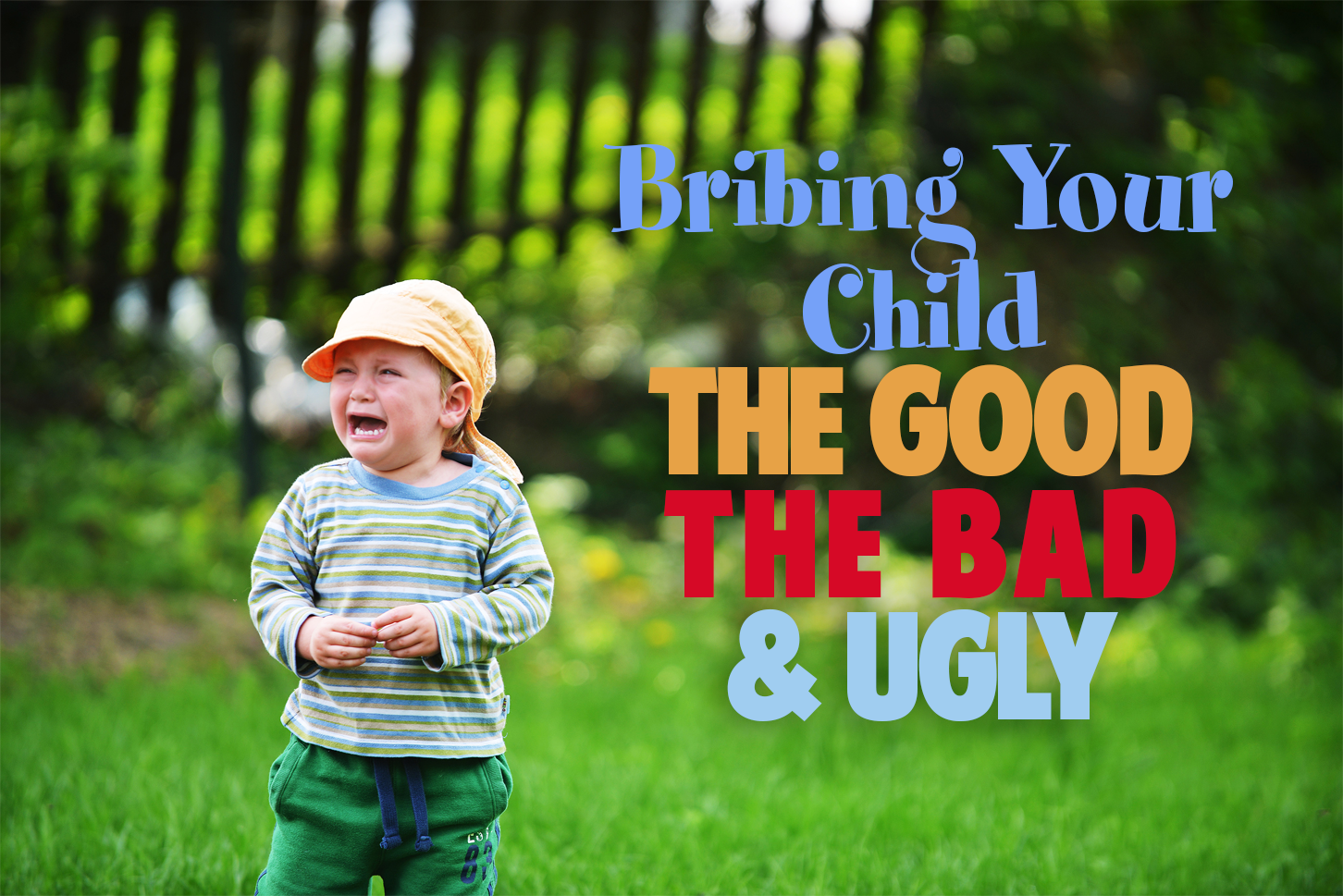Do you bribe your child? You need to stop right now. If you bribe your child you’re setting yourself up for behavior that will backfire. I will admit a bribe is an easy way out, but doing this on a regular basis will back fire on you. Research shows that a bribe only results in a temporary compliance, not a long term behavior change. Your job is to take control of the situation. Don’t play the bribe game; if you do you may be setting yourself up for a life sentence of bargaining with your child. Before you know it that extra cookie turns into a new computer game.
Bribes vs. Rewards
When is it ok to bribe your child? Well, that depends. First we need to establish what exactly a bribe is. In essence, a bribe comes before the action. You’re giving something away to illicit a desired response. When you bribe your child you are conditioning them to anticipate something before they need to comply. This will ultimately get turned on its head. Your child will use this as a tool to get what they want at all times. Your child is really smart and they know exactly the buttons to push. You’ve taught them that they should expect something before they need to behave; and now if they don’t receive it when expected they’ll throw a fit until they do.
Conversely lets examine what a reward is. A small word change, but a big difference. A reward comes at the end. A good analogy is getting a paycheck at the end of the week for doing your job. The paycheck is a reward, expectations are met and rewarded. When you give a reward because of good behavior and not in hopes of good behavior you’re creating positive reinforcement.
Positive Reinforcement
Positive reinforcement is the end goal. When you practice positive reinforcement with your child you’re teaching them that good behavior is expected first. If good behavior is received then a gift may be given. Over time, the frequency of these rewards should be reduced. Don’t give a reward every time. Only sometimes, with no particular pattern. This way your child won’t grow dependent on the reward. They’ll continue to demonstrate good behavior in hopes of a reward that may be coming. And as they grow they’ll continue they’re good behavior because it’s become the standard behavior.
5 Steps to “Doing the Right Thing”
When there are rules in place, and consistency is present children have an easier time of “Doing the Right Thing”. Keep these 5 easy rules in mind throughout the day and every time you need to parent your child.
- Take control of the situation.
- Give your child a choice not a bribe.
- Use verbal praise with a hug, after your child completes a task.
- Use random rewards. Surprise your child with a reward for completing a task later in the day, maybe with an extra story at bedtime.
- Reinforce good behavior. Help your child express how they feel when they do the right thing.
Cheat Sheet
Bribes
- Reactive
- Reinforces acting out
- Last ditch effort
- Offered in frustration
- Child in control
- Reinforces negative behavior
- Emotional reaction
- Given resentfully
Rewards
- Proactive
- Rewards good behavior
- Planned ahead
- Thoughtfully planned
- Parent in control
- Develops good habits
- Rational thoughts
- Given proudly
Don’t bribe your child. Bribes in the long run are negative in every way. Establish expectations for your child, take control, and be consistent. Your reward will be a very happy well behaved child.
Do you bribe your child? What kind of behavior have you seen as a result?

 Don’t Compare Your Child
Don’t Compare Your Child 3 Steps to Dining Out With Your Kids
3 Steps to Dining Out With Your Kids How To Teach Table Manners to Your Kids in 6 Rules
How To Teach Table Manners to Your Kids in 6 Rules Don’t Just Skip A Grade Because They Say You Can: Part 2
Don’t Just Skip A Grade Because They Say You Can: Part 2 Don’t Skip a Grade Just Because They Say You Can
Don’t Skip a Grade Just Because They Say You Can
Do you feel rewarding for good behavior is different than bribing the child to have good behavior ?
There is a fine line between bribing and rewarding, but at the end of the day…bribing is about holding the “carrot” to accomplish a desired result. Whereas, a reward is not usually predetermined, but it can be. The ultimate reward is to nurture a child’s own self esteem and pride for their accomplishments without having to hold the “carrot.”
For further information on this subject, I recommend this link.